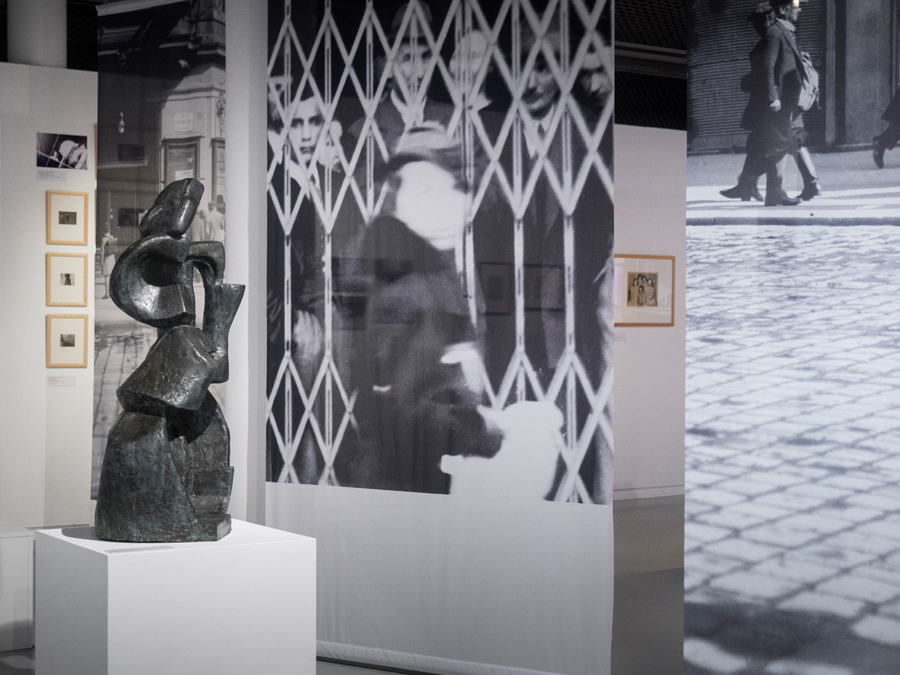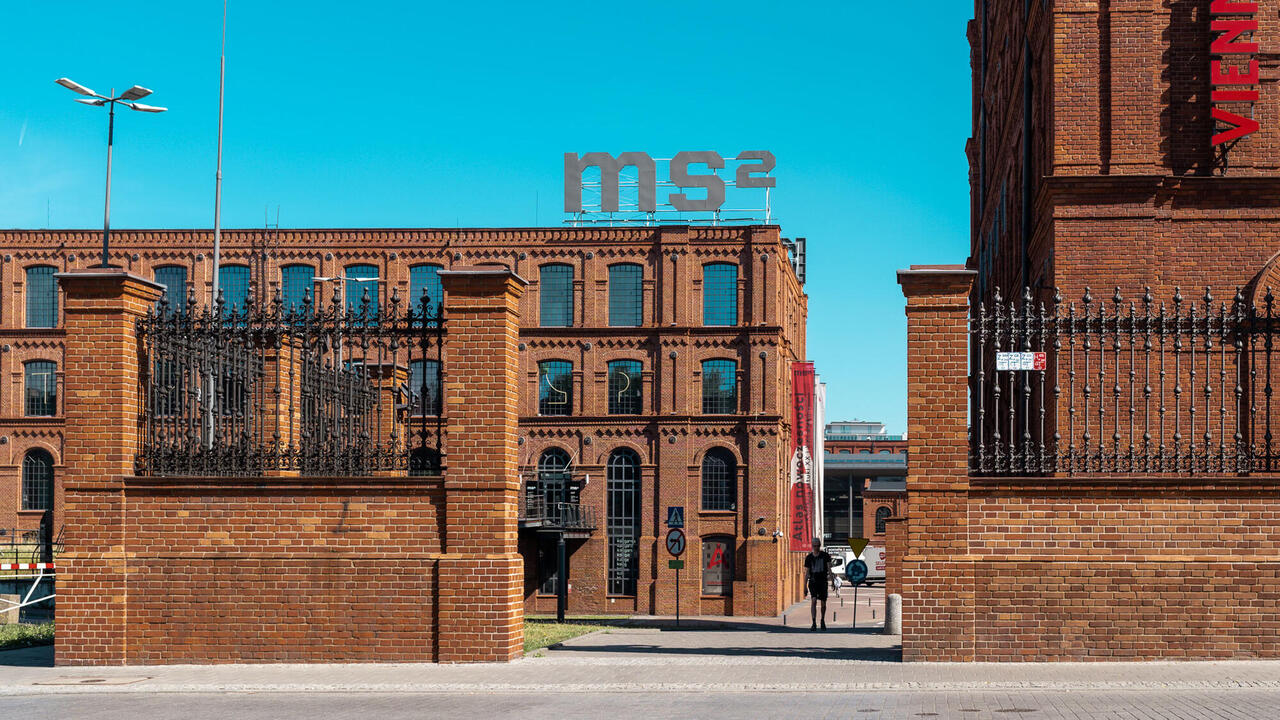Montages. Debora Vogel and the New Legend of the City
Muzeum Sztuki, Łódz, Poland
Muzeum Sztuki, Łódz, Poland

Encased in a tangle of geometric shapes, a bearded man empties a pitcher into a cup in Henryk Streng’s Pouring Wine (1927). Upon seeing the work at the artist’s studio, a friend noted: ‘The large painting barely fits on the easel, as though a meteor had fallen through the balcony doors straight from Paris.’ Yet, identifiable in the piece is Streng’s native Lviv. As the visitor observed: ‘One can make out the outline of Moses pouring water from a jug. A signboard motif from Krupnicza or Starozakonna street.’
With a population of over 200,000, Lviv – claimed by the Polish after the collapse of the Habsburg monarchy in 1918 and now part of Ukraine – was home to an ethnically diverse artistic community in the 1920s. Streng was a member of Artes, Lviv’s most prominent collective, established in 1929 and bringing together Jews, Ukrainians and Poles. Artes straddled cubism, futurism and surrealism to convey experiences of the city centre and suburbs, vitrines and flea markets. This fascination was shared by Debora Vogel, a young poet and art critic whose output remains underappreciated. The exhibition examines the interwar avant-garde in Polish territories in parallel to Vogel’s own writings about the modern city, identity and political engagement.

Returning to Lviv from Vienna in 1918, Vogel was drawn to repetition, geometry and combination. Montage became her key working principle, driving her prose impressions, published as Acacias Blossom (1935). Her criticism in the Lviv-based Sygnały (Signals) traced the origins of photomontage from Pablo Picasso and Georges Braque to Max Ernst, Aleksander Krzywobłocki and other Artes members who balanced surrealism and constructivism. A string of mesmerizing photomontages from 1927–32 by Krzywobłocki fuse symmetrical patterns and human appendages. For Vogel, though, montage was more than a technical device. A mode of perception, it captured ‘the polyphony of life’, combining the ‘lasting, eternal and […] that which is current and everyday, from economic to political life’.
The exhibition attempts to reflect such polyphony, thrusting the viewer into kaleidoscopic displays thatmix artworks with cityscape imagery: architectural designs, magazine covers, mannequins and neon signs. The montage here is rewarding and challenging, giving Lviv echoes of other cities: Berlin, in video snippets of Walter Ruttmann’s Symphony of a Metropolis (1927); Łódź, in Władysław Strzemiński’s undulating tempera ‘Landscapes’ (1933); Paris and its street signs in Janusz Maria Brzeski’s photographs and in works on paper by Ludwik Lille and Jerzy Janisch; and even Stockholm. As well as providing a formal echo of Vogel’s writing and life, this urban montage asks questions about the specificity of cities and their errant inhabitants.

Lviv’s diversity offered a unique space for negotiating national and cultural identities. Aside from local authors, the left-oriented Signals featured contributions from the likes of André Malraux, Bertrand Russell and Upton Sinclair – ‘Published in Lviv’ proudly signalled on its masthead. Vogel penned her works in Yiddish, establishing contact with the New York avant-garde poets publishing Inzikh (In Oneself), a Yiddish modernist journal. But this liberty was short-lived. The 1930s saw the streets of gloss and kitsch turn to barricade as the city sunk into conflict. As Vogel pronounced the ‘exhaustion of the geometric phase in art’, the Artes group reacted to popular unrest with their ‘new realism’. Streng’s Demonstration of Paintings (1933) depicts two men holding up canvases and a third with a megaphone. The canvas in the centre shows a male figure lying on the ground, likely a killed worker. It’s an early farewell to the new legend of the city that he and others sought to write. It was Streng who, in 1942, found the bodies of the Vogel family in the Lviv ghetto.
Main image: Aleksander Krzywobłocki, Fotomontaż (Photomontage), 1929-1930, (detail), 16 x 10 cm. Courtesy: Muzeum Sztuki, Łodz






















